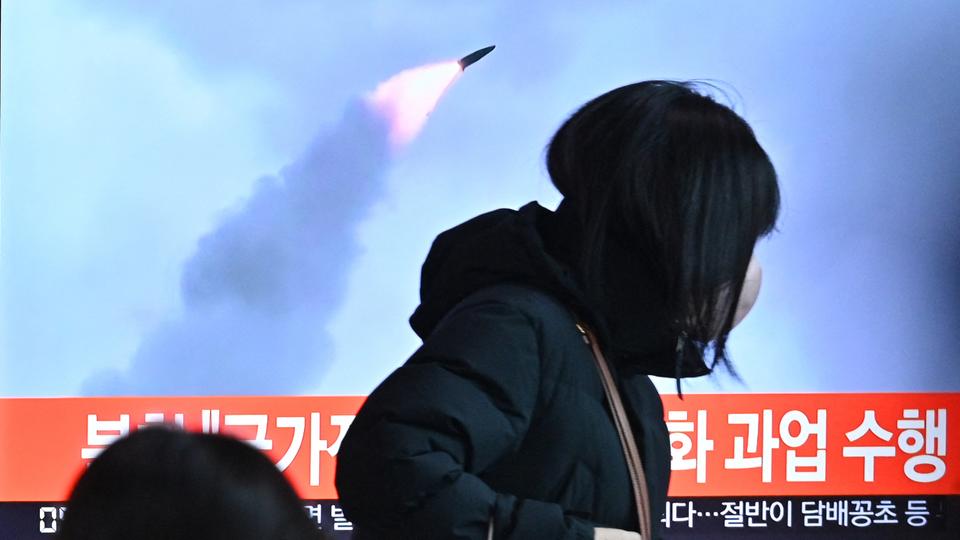North Korea has fired what appeared to be a ballistic missile into its eastern sea, its second weapons launch in a week, the militaries of South Korea and Japan said.
South Korea’s Joint Chiefs of Staff on Tuesday said North Korea likely fired a single ballistic missile from an inland area to its eastern sea, and that the South Korean and US militaries were analysing the launch. It didn’t immediately say how far the weapon flew.
Japan’s Prime Minister’s Office and Defense Ministry also said the weapon was possibly a ballistic missile, but officials didn’t immediately provide more details.
Prime Minister Fumio Kishida said officials were checking the safety of ships and aircraft around Japan, but there were no immediate reports of disruptions or damage.
“It is extremely regrettable that North Korea has continued to fire” missiles so soon after the UN Security Council discussed its response to the North’s earlier launch, Kishida said.
The Offices of Guam Homeland Security and Civil Defense said they were monitoring the reports of the launch but that no immediate threat was assessed for Guam, a major US military hub in the Pacific.
This month’s launches follow a series of weapons tests in 2021 that underscored how North Korea continues to expand its military capabilities during a self-imposed pandemic lockdown and deadlocked nuclear talks with the United States.
The launch came six days after North Korea fired a ballistic missile into the sea in what it later described as a successful test of a hypersonic missile, a type of weaponry it claimed to have first tested in September.
Second test in a week
North Korea’s previous test on January 5 came days after Kim vowed during a key political conference to bolster his military forces, even as the nation grapples with pandemic-related difficulties that have further strained its economy, crippled by US-led sanctions over its nuclear programme.
The economic setbacks have left Kim with little to show for his diplomacy with former US President Donald Trump, which derailed after their second meeting in 2019 when the Americans rejected North Korea’s demand for major sanctions relief in exchange for a partial surrender of its nuclear capabilities.
The Biden administration, whose policies have reflected a broader shift in US focus from counterterrorism and so-called rogue states like North Korea and Iran to confronting a near-peer adversary in China, has said it’s willing to resume talks with North Korea “anywhere and at any time” without preconditions. But North Korea has so far rejected the idea of open-ended talks, saying the US must first withdraw its “hostile policy,” a term the North mainly uses to describe the sanctions and joint US-South Korea military drills.


Comment here